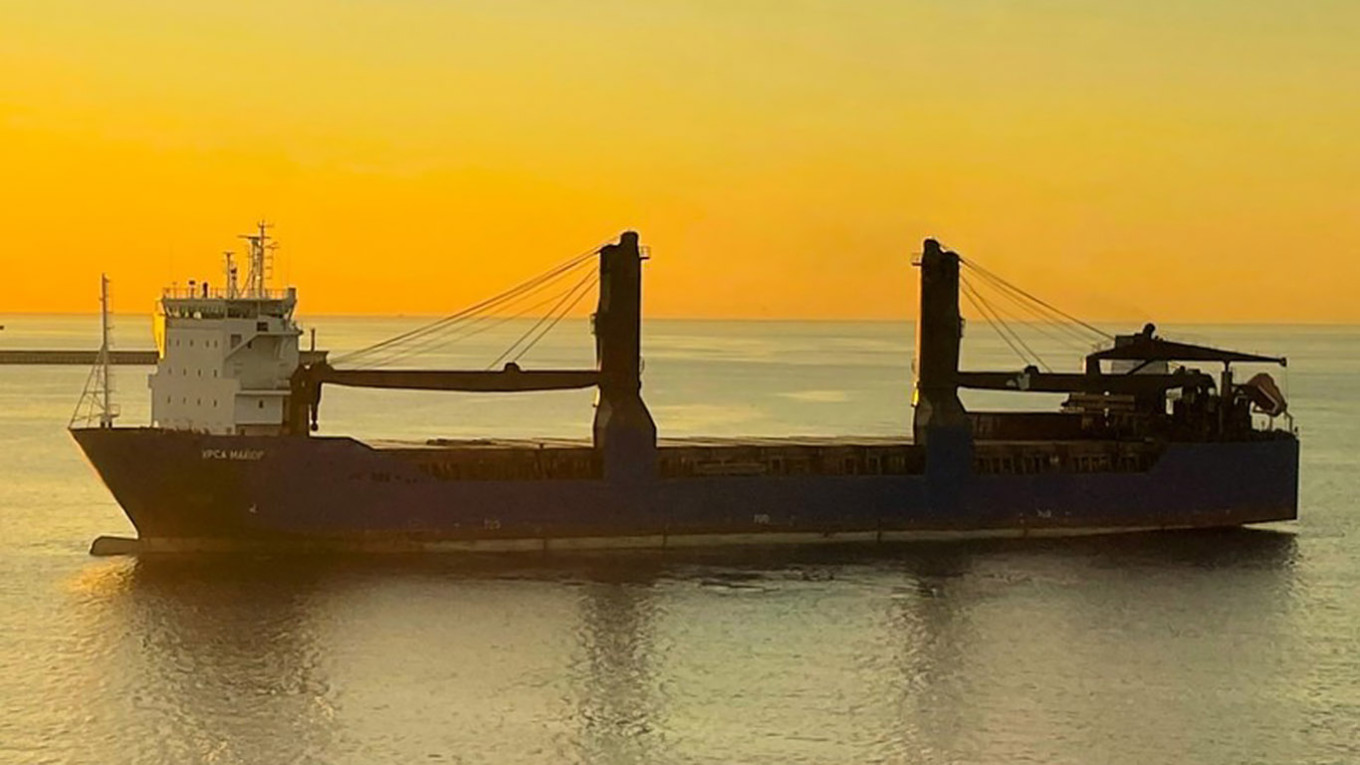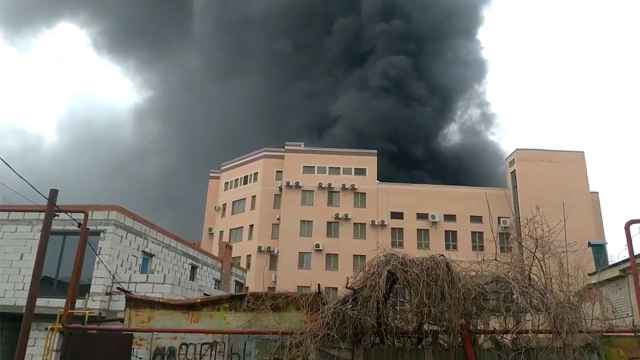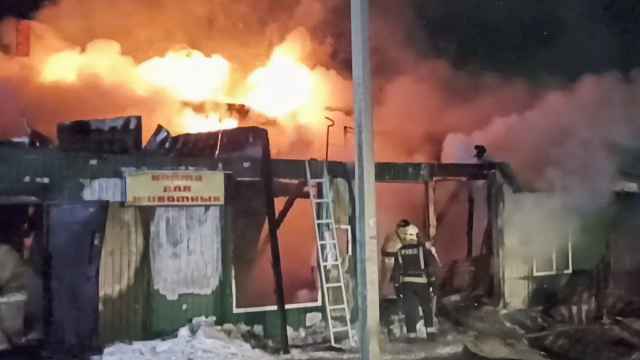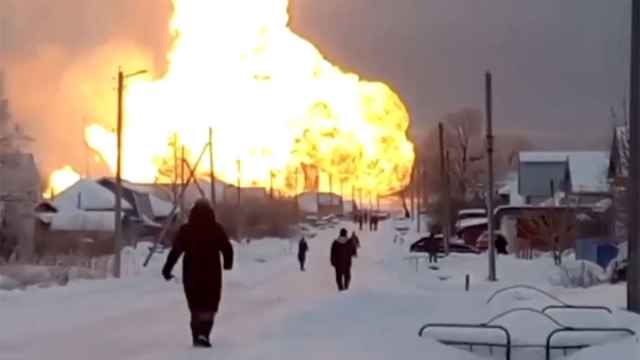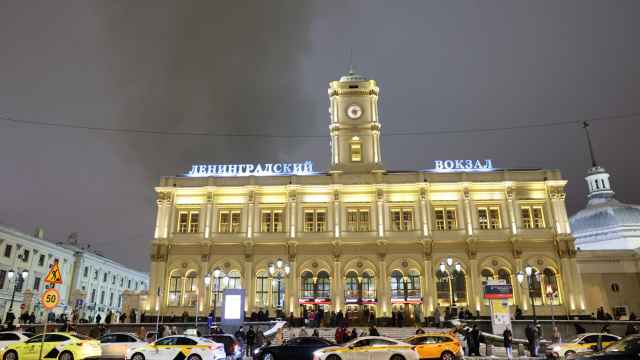Two crew members are missing after a Russian state-owned cargo ship sank in international waters in the Mediterranean Sea after an explosion on board, Russia's Foreign Ministry said Tuesday.
The Ursa Major sank "after an explosion in the engine room," the ministry's crisis unit said, adding that 14 crew members were rescued and taken to the Spanish port of Cartagena while another two remained missing.
Spain's sea rescue service said in a statement that the ship sent a distress call Monday morning when it was off the coast of southeastern Spain in bad weather, reporting that the ship was listing and a lifeboat had been launched. It dispatched a helicopter and rescue boats and took the survivors to port, where they were helped by the Red Cross.
A Russian warship then arrived and took charge of the rescue operation since the ship was between Spanish and Algerian waters, after which the Ursa Major sunk overnight.
"According to the survivors' account, the cargo ship was carrying empty containers in the hold and two cranes on deck," the Spanish rescue service said.
The ship's owner Oboronlogistika, which belongs to the Russian Defense Ministry and also provides civilian transport and logistics, said the Ursa Major was carrying harbor cranes and hatch covers for icebreakers.
Russia's Foreign Ministry said the ship is owned by a subsidiary of Russia's Oboronlogistika, which belongs to Russia's Defense Ministry and also provides civilian transport and logistics services. A map on Oboronologistika's website shows the company covers a route from Novorossiisk, in southern Russia, to Tartus, Russia's naval base in Syria.
The Ursa Major is listed on MarineTraffic.com as a 124.7-meter (409-foot) long general cargo ship sailing from Saint Petersburg to Vladivostok in Russia's Far East.
Oboronlogistika issued a press release last week with photos of the ship in port, saying it would transport a large and heavy load of cranes and hatch covers for icebreakers to Vladivostok. It said this was part of "state" efforts to develop ports and the northern sea route via the Arctic.
A Message from The Moscow Times:
Dear readers,
We are facing unprecedented challenges. Russia's Prosecutor General's Office has designated The Moscow Times as an "undesirable" organization, criminalizing our work and putting our staff at risk of prosecution. This follows our earlier unjust labeling as a "foreign agent."
These actions are direct attempts to silence independent journalism in Russia. The authorities claim our work "discredits the decisions of the Russian leadership." We see things differently: we strive to provide accurate, unbiased reporting on Russia.
We, the journalists of The Moscow Times, refuse to be silenced. But to continue our work, we need your help.
Your support, no matter how small, makes a world of difference. If you can, please support us monthly starting from just $2. It's quick to set up, and every contribution makes a significant impact.
By supporting The Moscow Times, you're defending open, independent journalism in the face of repression. Thank you for standing with us.
Remind me later.


